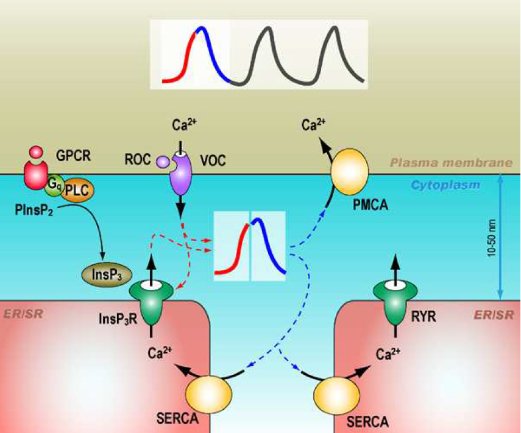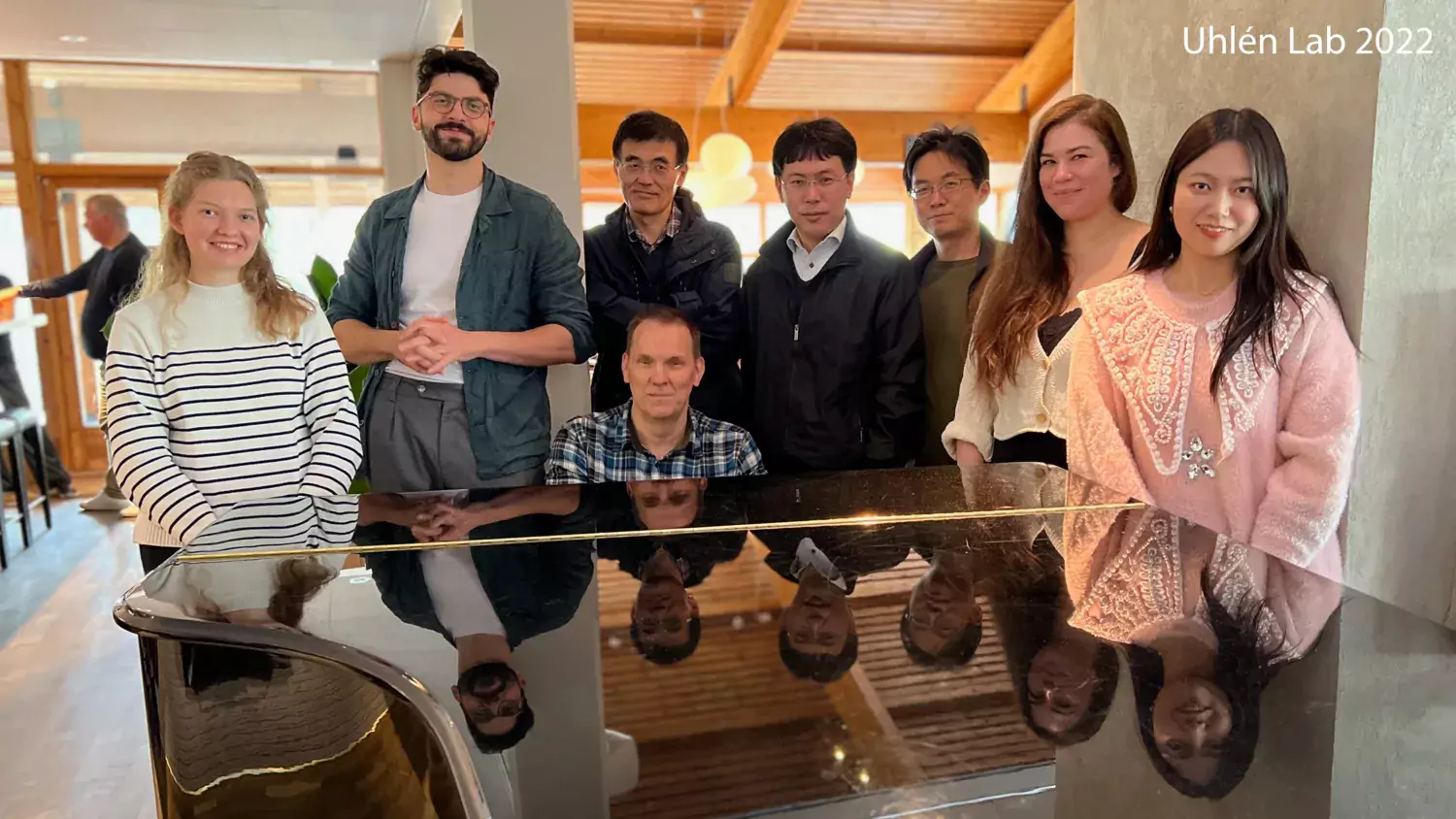Research
Our research group is studying developmental and cancer related processes in various types of cells. The biological platforms that we are applying are tissue slices, primary cell cultures, cell lines and stem cells. To study the processes of cell division, cell differentiation, and neural migration/networking we are applying state-of-the-art imaging techniques and modern genetic tools, such as transgenic animals. Our focus is to shed light on the intracellular cell signaling mechanisms that regulate vital processes for development and disease. We are particularly interested in calcium signaling and how cells are modulating and decoding the frequency/amplitude of intracellular calcium oscillations.
Calcium Signaling

Calcium is an almost universal intracellular messenger that controls a vast number of cellular processes spanning from fertilization to cell death. Cells create large calcium concentration gradients (~10'000 to 1) between the extracellular fluid, cytoplasm, and internal calcium stores by means of calcium-pumps located in the plasma membrane and in the membranes of internal calcium stores. These gradients provide ideal conditions for the use of calcium as a cellular currency that supports the propagation of intracellular calcium waves.
The concerted actions of calcium transporters located in the plasma membrane and in the membranes surrounding internal stores, including the endoplasmic and sarcoplasmic reticulum, the mitochondria, and the nucleus, can generate calcium oscillations. As with a radio transmitter, cells exploit the two key features of oscillatory signals - frequency and amplitude - to utilize calcium as a second messenger to generate a large variety of intracellular signals. This is an efficient way to use the same second messenger to activate many different cell processes.

